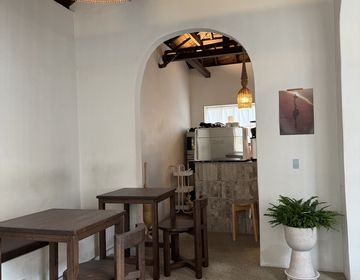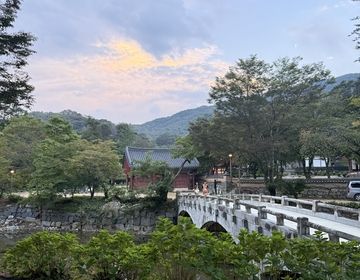5 Things to do when you arrive in South Korea
1.Purchase a SIM or eSIM card
You may think that the international roaming option on your home country's carrier is enough to get you through your stay in South Korea, but let me be the first to tell you… it’s not. I wanted so badly to not have to purchase an eSIM for my phone but after almost a month of virtually no service off-campus I caved. However, it is very easy to get an eSIM or SIM card. Through sites like Trazy you can even schedule your arrival to line up with your activation so you have reliable service right away, and pay upfront for your entire stay. It’s pretty cheap, you get calls, texts, and most importantly service. For my first month in Korea every time I left campus it would take forever for my phone to load and local wifi is typically overworked and unusable. However, the real problem is not having the ability to access Naver or Kakao Maps quickly. When you get lost and are unable to recognize your surroundings, having to wait 10 minutes for NaverMaps to load, then another 10 to enter the right location can be especially stressful. Additionally, to be able to deliver food, order on kiosks, and have memberships you need a Korean phone number. Therefore, at the end of the day it’s worth it to get the SIM/eSIM.
2. Withdrawal Cash
The next thing you should do after arriving is to withdraw some cash. Even after telling your bank about your trip, they may freeze your card for suspicious activity, some places don’t take cards, and some foreign cards don’t work. Therefore, it’s a good idea to take out about 200-250 USD just to be safe. Exchanging or taking out cash can be done at the airport or at your university's local bank, when doing so I recommend withdrawing in 10,000₩ bills they are easy to break, and with prices in Korea being pretty low, so these are the most convenient. Also in places such as Myeong-dong, at markets, and eating out with friends, cash is better, and quicker than using a card. Additionally, many CIEE programs require a deposit in cash, so it's always best to have some on you.
3. Unpack when you get to your dorm… just do it
I know it’s annoying to have to unpack your entire luggage at 2am after arriving in a foreign country and traveling 16+ hours. But trust me just do it. When attending CIEE programs they have many activities, orientations, and meet-ups that keep you pretty busy and away from the dorms making it hard to unpack later in the week or month. My roommate and I decided the night we got there we would clean and completely unpack and personally I believe that was a great decision. You will feel more comfortable and organized once your stuff is away and it will be easier to start the next day. It may be inconvenient but you won’t regret it.
4. Take a trip to Daiso (다이소)
Hands-down Daiso will be your best friend in your first few weeks in Korea. It’s pretty much an American equivalent to FiveBelow but better quality. They sell school supplies, beauty products, wallets, socks, shoes, humidifiers, water bottles, you name it, Daiso most likely has it. Except for bedding. One thing to know though is that check-out is a little frightening. Coming from someone who completely messed up the first time, this is how you do it. First, there is always an English setting, but if you’re nervous and forget because the line of people behind you is growing, don’t worry the pictures are enough. The next thing you do is select your payment method, if it is a card you put it in before you begin scanning, if it's Apple Pay you simply select that icon. Then you choose if you need a bag, most of the time there is an extra charge of about 200-300₩ and you select the size and grab it yourself. Then you can start scanning, but don’t use the barcode, no, no, no, you must scan the QR code in the corner by the price. Afterwards you go through whether or not you have a membership and pay. It’s simply once you figure it out but kind of overwhelming to start with. But don’t worry you will learn and be an expert by the end of your program.
5. Get acquainted with your new surroundings
Finally, after all of your activities and getting settled in, go explore before classes start. Visit the local restaurants and shops, learn how to navigate the subway and bus stations, and get comfortable. Korea may be huge when you first get there but as soon as you know your way around you will start to feel like a local. These first few weeks on your program will be overwhelming but so much fun, and exploring the city you’re in is one of the best parts. So take some new friends with you and learn a bit about where you are staying, go visit some close cities, go shopping in Myeong-dong, Hong-dae, visit Bukchon, and Gyeongbok, don’t worry about looking like a tourist because in these first few weeks you are one. So be safe, have fun, and make the most of your time abroad!
Related Posts
My Time in South Korea Attending Yonsei University: A Life-Changing Chapter
By: Zahrraa Al-Salman Studying abroad had always been a dream of mine—an opportunity to step outside of my comfort zone, immerse myself in a new culture, and deepen my understanding... keep reading







